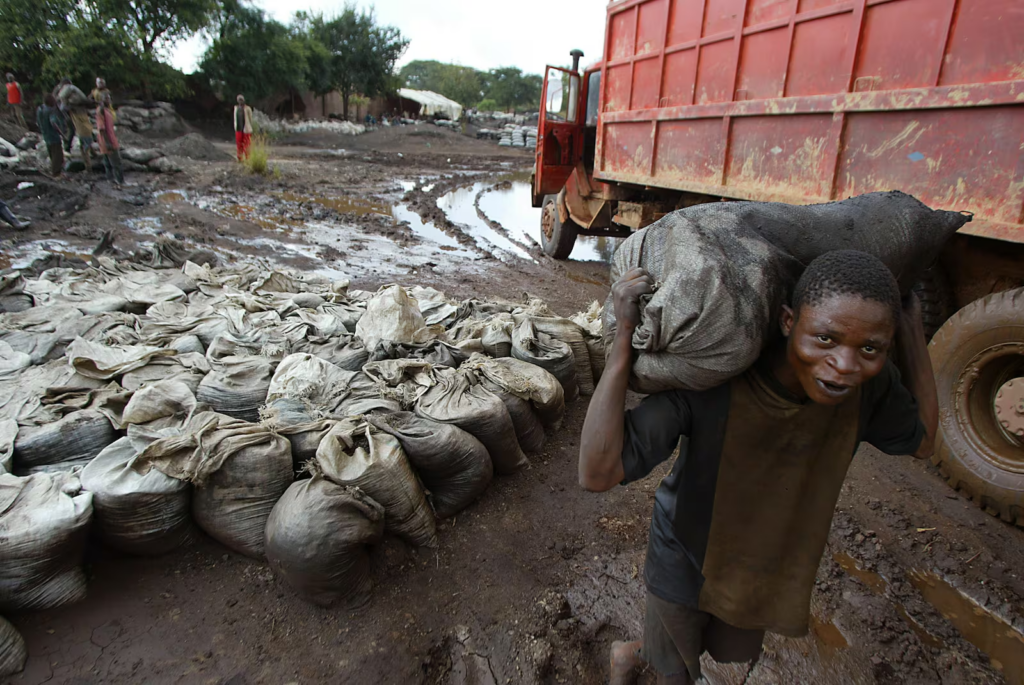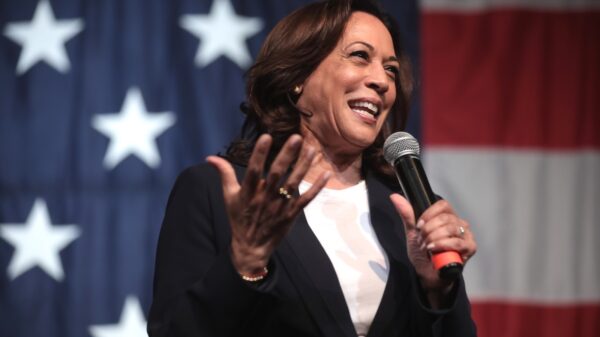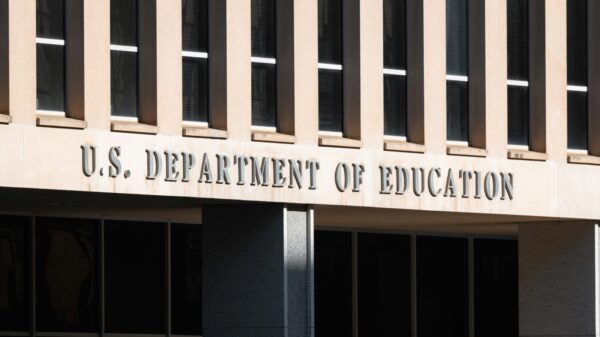
Conditions in the Democratic Republic of Congo (DRC) are failing, and they are not getting better. The economy is impoverished, the leaders corrupt and the military weak, and there is very little that can be done to fix these problems. For the sake of stability and peace in the region, something needs to change or else the experiment of a Congolese state will die.
On its face, this all seems quite absurd. How could a country the size of western Europe and 100 million strong, be compromised so harshly by surrounding countries with less natural wealth and smaller populations?
The Congo is home to the highest concentration of vital rare earth minerals in the world, which many people see as a strength. However, similar to many other African countries, this placed a target on the nation’s back. In the 19th and 20th centuries, European powers Belgium, France, Britain and even Germany pillaged and stripped the Congo of its resources to gain wealth, and this has not effectively changed.
This type of exploitation has expanded and normalized with time, and ethical or not, Apple, Tesla and leading companies fueling today’s tech revolution need the Congo. Deep in the lands of the DRC, you will find 70% of the world’s cobalt, an essential ingredient for battery power of all electronic devices and a majority of global lithium, a product for which electric vehicles would be unable to operate without.
By all accounts, the key to the future is in Congo. With a steady stream of facts, it is difficult to see a way out as “demand for lithium [is] projected to increase sixfold between 2022 and 2035 if existing climate targets are to be reached,” according to Global Witness. Facts like these leave idealists stumped, because it is a familiar situation for many oil-rich countries of recent years. When someone at the top leads the country in the right direction, it doesn’t need to be a zero-sum game.
The Congo is not the only part of the world with mineral wealth. Look at the Middle East. Why must there be skyscrapers, megaprojects, and fancy cars in cities like Dubai and Abu Dhabi, but not in the capital of DRC, Kinshasa? Now, we get to the true weakness of today’s DRC.
To Howard senior Léo Muderhwa, born and raised in the DRC, it’s a matter of leadership.
“The problem with the leadership is that it is nonexistent. We don’t have any,” he said.
Even when compared to other struggling countries on the continent, the DRC is woefully unprepared for modern society. Leo jokingly remarked on the problems facing the Congo today, “If I were to answer that, we would be here all day.”
Globally, the DRC ranks 200th in literacy, 5% of the world’s average in GDP per capita, 164th in political stability, and only 19% of the 100 million strong population with access to electricity.
Above all, Sub-Saharan Africa has experienced its own fair share of political crises, almost all of which affected the DRC to varying degrees, with aftereffects lasting until today.
The Rwandan Genocide still looms heavy over this region, with both ethnic groups Tutsis and Hutus on either side of the border. In the past 30 years since Rwanda has regrouped under the shrewd leadership of Paul Kagame, and despite alleged clampdowns on freedom of speech and other human rights violations, his rule has dramatically altered the power dynamic of the region.
This began in the Congo Wars of 1998 to 2003, which was initially launched by the vengeful Rwandan state led by Kagame, who attacked eastern DRC out of suspicion of harboring ethnic Tutsis suspected in perpetrating the horrific genocide. After years of conflict that saw over 5 million dead, Kagame has consolidated control within his borders, but never left the DRC.
After repeated protests, a 2024 report done by the United Nations (UN) recognized that thousands of Rwandan soldiers are currently deployed in the DRC for extraction and destabilization operations, covertly allying with the rebel group M23 in its mass violence, indiscriminate bombings and attacks on central government military forces and civilians alike.
Over the summer, the UN issued a statement shedding light on Rwanda’s illegal mineral extraction outside their borders, as the armed groups they support employ child labor to extract tungsten, tantalum, tin, gold, and cobalt and sell them to western companies like Apple, Tesla, Microsoft, Google, Intel, and others for the production of electric cars, phones, and other daily technologies most of us in the US take for granted.
In March, the U.S. Court of Appeals in a 3-0 decision absolved these companies from wrongdoing, concluding they could not be held liable, despite their links to child labor.
During that time, ABC News reported on the decision, quoting the Court of Appeals final opinion, where it was argued that, “they did not have anything more than an ‘ordinary buyer-seller transaction’ with suppliers in the DRC,” alluding to the companies possibly being unaware of the situation.
Nevertheless, child labor in the DRC’s mineral extraction process has been a known fact for years, with a 2021 report by the Wilson Center being among many to call attention to the issue over a year before the charges were filed.
In response, the U.S. Department of State issued a statement on the situation in July, calling on U.S. companies in the region that incentivize this behavior to “end forced labor in supply chains,” however, there is no evidence this has aided in repairing the damaged nation, or done much of anything really.
For this, Dr. Chambi Chachage of Howard’s African Studies Department condemned the West, he said they are “indeed a factor” and “instrumental in the destabilization of the DRC.”
Chachage also recognized the growing need for resources currently in the Congo but raised ethical concerns.
“Their presence and their extraction of these resources and child labor whether they are involved directly or indirectly is part of the destabilization, no doubt about it,” he said.
Howard’s doctoral candidate, Amir Demeke, said we can’t blame Rwanda for their practices, since “there is no long term solution to intercontinental use of resources across geopolitical borders that were established by Europeans.”
Amir referenced the ethnic diversity of the continent and how Europe’s colonial border carving makes contemporary states illegitimate in many ways.
“When it comes to ethnicity and ethnolinguistic nations that cross geopolitical borders, Congo is one of the most diverse. Similar to Somalis in Ethiopia, Kenya and Sudan and Igbos in Cameroon and Nigeria, the Congo has a melting pot of dominant ethnicities and cultures,” he said, referring to the sizable population of ethnic Rwandans in Congo.
He argued that due to Europe’s disregard for ethnic tensions, today’s states can claim ownership over any land the predominant ethnic group inhabits. As of now, there is no solution to this.
In many ways, the strongest case against the DRC lies in the concept of state abdication, the renouncing of authority. The lands of the Congo have been a battleground for decades, arguably centuries, without end and no leader has either the authority or the will to do anything about it. If reports are to be believed, Rwanda and its theft of Congolese minerals is the exception.
It’s hard to believe, but most of the exploitation in the country is done through premier bag-selling in legitimate state-sponsored deals.
In January, Congolese President Felix Tshisekedi signed a 7 billion dollar deal with Chinese state-owned construction conglomerates investing in development projects under the condition that the DRC surrender control of two-thirds of its national cobalt and copper, together estimated to be worth between $100 billion and $300 billion.
Deals like these fuel the notion that the country is selling itself away. The Congo is teetering on the edge of state collapse and it’s in the interests of all powers, whether they be Rwandan, Chinese, or American to intervene. Consistent pillaging of resources and rigged extraction deals need to stop in order for more wealth and stability to circulate throughout the nation.
This situation must be treated by all parties involved as a global imperative, and if this fails, given the powerful interests in the region, it holds all the ingredients to put the modern world to a stop. The people of the Congo are calling out for help and the world ought to listen.
Copy edited by Anijah Franklin











